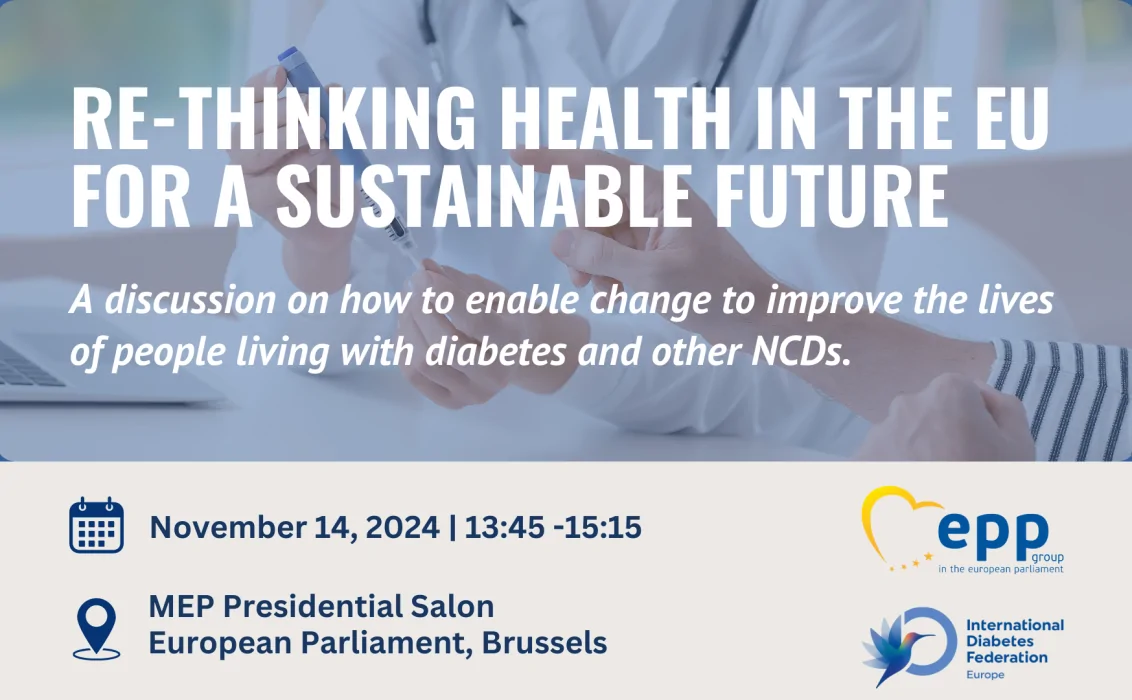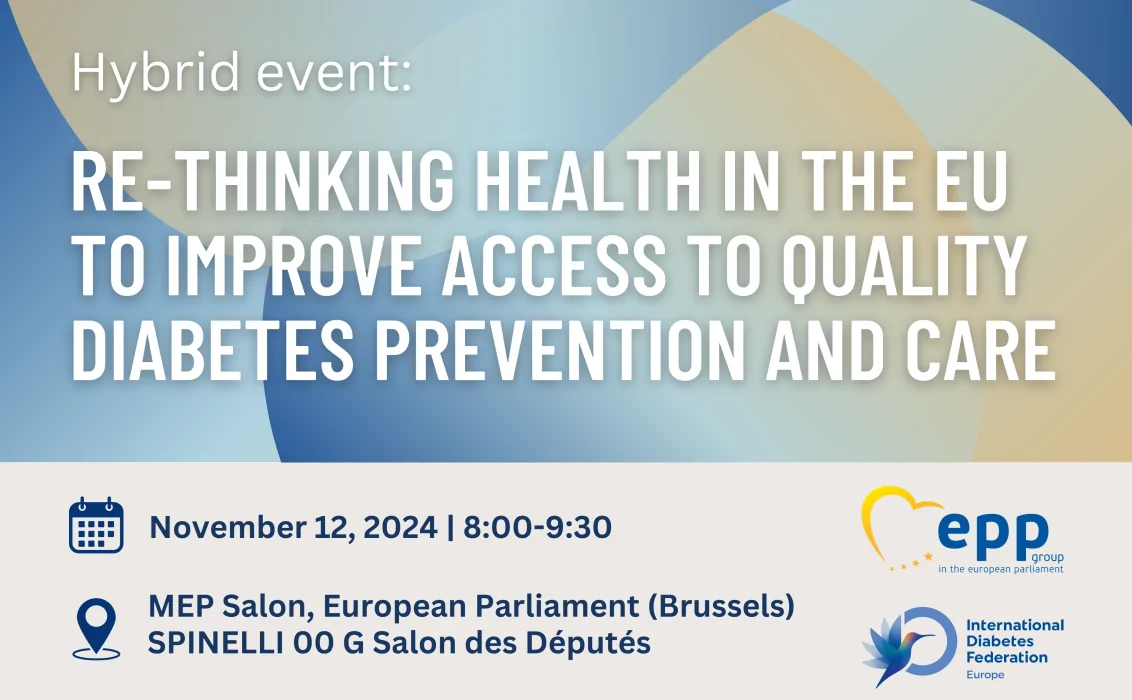IDF Europe congratulates the Belgian Presidency and the Members of the Council of the European Union (EU) for the adoption of their conclusions on the future of the European Health Union, on Friday June 21, which calls on the European Commission (EC) to keep health as a priority in its upcoming five-year term. IDF Europe welcomes the focus on the prevention of non-communicable diseases (NCDs) within the conclusions and urges the EU institutions and Member States (MS) to implement the proposed actions through a health-in-all-policies approach and accelerate action to strengthen the management of NCDs.
What are the ‘Council conclusions’?
Following each rotating presidency of the Council of the EU, formal statements are adopted by the Council to summarise the priorities and outcomes achieved during the presidency’s term as well as provide guidance and set future priorities on policy issues. These conclusions, while not legally binding, carry significant weight and are aimed at coordinating policies and strategic goals among MS and providing guidance to the EC. In this context, the Council’s conclusions provide insights into the EU’s stance on important issues such as health and the future priorities of the institutions.
Council conclusions under the Belgian presidency
The Council conclusions, drafted by the Belgian presidency, reflect on the importance of putting health as a top priority of the EU political agenda and recall the need to act on nine key health-related challenges as follows:
- tackling the health workforce crisis;
- addressing priority needs in healthcare and innovation policies;
- taking action in the field of prevention of NCDs;
- effectively combatting antimicrobial resistance (AMR);
- strengthening the EU ecosystem for clinical trials;
- taking action in the fields of preparedness and communicable diseases;
- improving the security of supply for, and access to, medicinal products and the security of supply for medical devices and in-vitro diagnostic medical devices;
- addressing the impact of climate change on health; and
- improving EU implementation tools.
Taking action in the field of prevention of NCDs
Regarding NCDs, the conclusions call for reinforced action to mitigate the impact of risk factors. They encourage MS to promote healthy environments and communities, adequately address tobacco and alcohol consumption, and maintain a focus on the psychosocial and mental health factors contributing to the increase in NCD prevalence. The conclusions also invite MS and the EC to strengthen the work of the ‘Healthier Together – EU Non-Communicable Diseases Initiative’ by supporting the implementation of effective NCD policies that include, for example, action plans on specific NCDs including diabetes.
IDF Europe welcomes the inclusion of NCD prevention as a key priority area and calls for a health-in-all policies approach
A holistic and integrated approach is required to address the NCD epidemic. This is essential for ensuring comprehensive care, improving patient outcomes, and effectively managing the complex interplay of physical, mental, and social health factors that affect the development and management of diabetes and other NCDs. Health should not be addressed in silos; European public policies should adopt a health-in-all policies approach, address fundamental health determinants and promote health-enabling environments. NCDs and diabetes are both caused and affected by policy fields beyond those directly related to health, for example, climate change and agricultural practices. As a result, concerted action by all stakeholders is required to address the NCD and diabetes epidemics. Alongside a health-in-all policies approach, it is imperative for policymakers to enter into dialogue with civil society organisations and people with lived experience to ensure that future actions and policies are both evidence- and needs-based.
Elisabeth Dupont, IDFE’s Regional Manager said “IDF Europe strongly welcomes the adoption of the Council conclusions and congratulates the Belgian Presidency for their dedicated work on strengthening the European Health Union. NCDs such as diabetes remain the leading cause of death in the EU. We must innovate and act decisively, evolving our strategies to ensure every policy, every initiative contributes to a healthier, diabetes-free Europe. It is a matter of public health, social justice and political will.”
IDF Europe also calls on MS and EU institutions to go beyond NCD prevention and accelerate actions that will address unmet medical needs and strengthen the management and care for PwD and other NCDs.
Despite political commitments and advancements in tools, medicines and technologies for diabetes management, one in two PwD do not meet their blood glucose targets and/or develop diabetes-related complications. Significant gaps remain in the management and treatment of diabetes adversely affecting both quality of life and health outcomes, clearly outlining the urgent need to act on PwD’s unmet medical needs. IDF Europe welcomes the acknowledgment within the Council conclusions of the importance of digital technologies, artificial intelligence (AI) and health data in advancing innovations and patient care and calls on the EU institutions to support research and innovation and promote the advancement and adoption of medical technologies and healthcare digitalisation to address PwD’s unmet medical needs and improve their health outcomes. Acting on unmet medical needs will also help build resilient health systems and enhance the EU’s competitiveness.
All of this must be done taking into account existing inequalities in access to care and health outcomes within and across EU countries. Irrespective of their circumstances, gender, location and age, PwD need access to the right treatment at the right time, including medicines, tools and technologies as well as self-management education, psychological support and screening for complications. Consistent with its aims of promoting the well-being of its citizens, social justice and equality and its values of human dignity and equality, the EU must drive universal, equal and timely access to high-quality care, medicines and technologies and ensure no-one is left behind.



